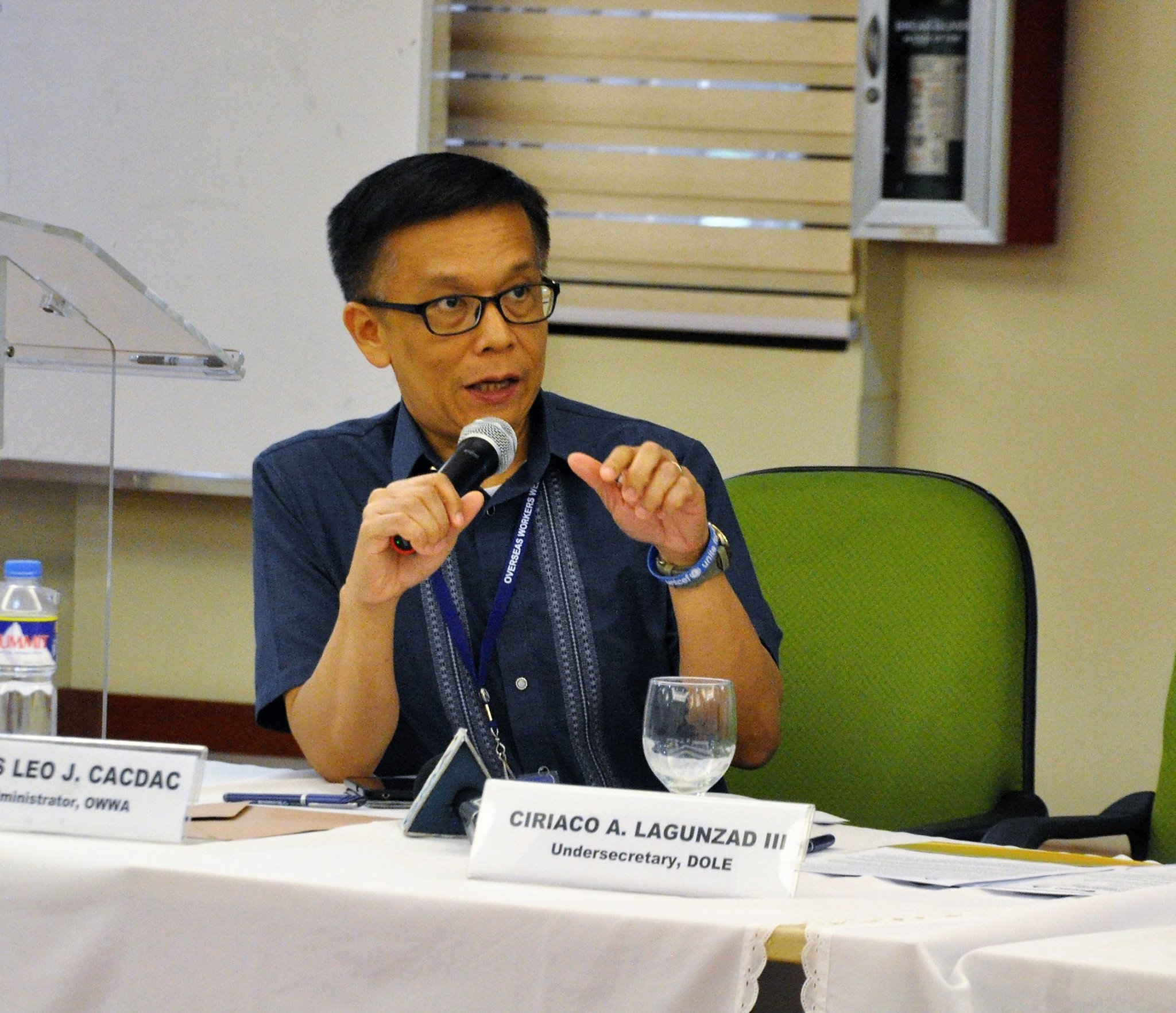Halted Kuwait deployment may affect 47K first-time DH

Undersecretary Hans Leo Cacdac. Image from OWWA / Facebook
The government’s decision on Wednesday to ban the deployment of first-time domestic helpers to Kuwait would affect about 47,000 overseas Filipino workers (OFWs), the Department of Migrant Workers (DMW) said.
The agency arrived at the estimate based on the number of Filipino domestic helpers that went to work in Kuwait in 2022, according to Undersecretary Hans Leo Cacdac.
Speaking at the Laging Handa press briefing on Thursday, Cacdac said the temporary ban would hold until the Philippine government had seen “reforms” for the stronger protection of OFWs in the Gulf state, following the killing of domestic helper Jullebee Ranara last month.
Ranara, 34, was reportedly also raped, her body burned and buried in the Al Salmi desert, by her employer’s 17-year-old son, who was later arrested.
Cacdac said the deployment ban was applied to first-time OFWs because they were considered “most vulnerable” to abuse and had more difficulty in adjusting to their new environment.
Article continues after this advertisement“We will not allow them to go to Kuwait until we are assured of tighter protections, stronger provisions of the standard employment contract,” he said, adding that the DMW would make sure only legitimate recruitment agencies would send migrant workers to that country.
Article continues after this advertisementThe government would like to see steps being taken for a more “effective monitoring” of the OFWs’ well-being, like orientation campaigns or seminars for both workers and employers in Kuwait “so that they can better understand our culture, customs” and “reduce misunderstandings.”
“These are parts of the reforms we expect to have before we can lift this deferment of (OFW deployment),” he added.